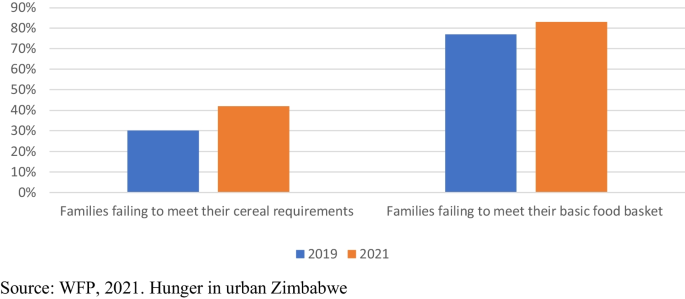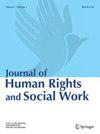Informality in Zimbabwe’s Urban Areas and the Resilience of Indigenous Solutions to Risk During the Pandemic
IF 0.8
Q2 SOCIAL WORK
引用次数: 0
Abstract
Abstract This study examined the role of networks and reciprocated assistance in curtailing the risk arising from an absence of centralised social protection programmes. Given how non-state interventions constitute a key part of the endogenous networks to social risk reduction, we also explored how the knowledge of exogenous emergency relief is localised and utilised. In examining these issues, in-depth interviews were done with a purposively selected sample of informal workers, their representative associations, and development partners. Amongst other factors, the findings showed that (i) informal mutual assistance networks are more adaptive, responsive, and inclusive and thus more preferred over exogenous relief — with complementarity between the two being low (ii) ex-post bereavement mutual assistance networks have stronger ties with a more versatile, knowledge sharing–centred utility that transcends the circulation/sharing of cash, food, and credit. The findings contribute to the scholarship on social welfare rights and networks in the context of reciprocated assistance and emergency relief.

津巴布韦城市地区的非正规行为和大流行期间土著解决风险的复原力
摘要本研究考察了网络和互惠援助的作用,以减少由于缺乏集中的社会保护计划而产生的风险。鉴于非国家干预措施如何构成减少社会风险的内生网络的关键部分,我们还探讨了如何本地化和利用外生紧急救援的知识。在研究这些问题时,对非正式工人、他们的代表协会和发展伙伴进行了深入访谈。在其他因素中,研究结果表明:(1)非正式互助网络更具适应性、响应性和包容性,因此比外部救济更受欢迎——两者之间的互补性较低;(2)丧亲后互助网络与更多功能、以知识共享为中心的效用有更强的联系,超越了现金、食物和信贷的流通/共享。调查结果有助于研究互惠援助和紧急救济背景下的社会福利权利和网络。
本文章由计算机程序翻译,如有差异,请以英文原文为准。
求助全文
约1分钟内获得全文
求助全文
来源期刊

Journal of Human Rights and Social Work
SOCIAL WORK-
CiteScore
2.00
自引率
8.30%
发文量
33
期刊介绍:
This journal offers an outlet for articles that support social work as a human rights profession. It brings together knowledge about addressing human rights in practice, research, policy, and advocacy as well as teaching about human rights from around the globe. Articles explore the history of social work as a human rights profession; familiarize participants on how to advance human rights using the human rights documents from the United Nations; present the types of monitoring and assessment that takes place internationally and within the U.S.; demonstrate rights-based practice approaches and techniques; and facilitate discussion of the implications of human rights tools and the framework for social work practice.
 求助内容:
求助内容: 应助结果提醒方式:
应助结果提醒方式:


